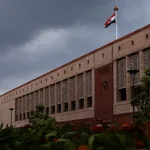The National Education Policy (NEP) 2020 is an updated policy and an initiative aimed at overhauling and revolutionizing the Indian education system. This policy aims to cater to the contemporary educational, research, and professional trends. One of the key aspects of the policy is its emphasis on interdisciplinary education and the importance it needs to place on the humanities, recognizing its integral role in fostering critical thinking, creativity, and ethical reasoning in students.
Humanities as a discipline has remained a crucial ingredient of various technical, medical, and management courses, as it fosters a sense of human values among the learners. Such human values and instincts do keep the humanistic nature of future-professionals intact and saves the society from going into the hands of professionals who are mere mechanical and technical beings. The current age of digitalization, cybernetics, biotechnology, robotics, and artificial intelligence demand an immediate inclusion of such components into the contemporary education system.
Overview of NEP 2020
NEP 2020 aims to create a more inclusive, flexible, and multidisciplinary educational framework, with the goal of transforming India into a global knowledge superpower. The policy promotes the holistic development of students by breaking down the rigid separation between disciplines and encouraging the blending of science, technology, engineering, and mathematics (STEM) with arts, humanities, and social sciences. A core objective of NEP 2020 is to instill a multidisciplinary approach to learning, where students are encouraged to explore various domains of knowledge, fostering a well-rounded and versatile skill set. This opens up new avenues for the humanities to take center stage in education, helping students cultivate soft skills such as communication, empathy, cultural awareness, and critical thinking.
Place of Humanities in NEP 2020
Ever since the liberalization of the educational sector, Indian education system has emphasized STEM fields, often sidelining the humanities as less career-oriented. NEP 2020 aims to shift this perspective by integrating the humanities into mainstream education and positioning them as vital to the holistic development of individuals and society. Under NEP 2020, humanities are no longer viewed in isolation but are integrated with other fields. This interdisciplinary approach ensures that students gain exposure to history, philosophy, languages, literature, sociology, psychology, and other humanities disciplines, alongside technical and scientific studies. By promoting the study of Liberal Arts, NEP 2020 creates a system where students can pursue humanities courses along with other major disciplines. For instance, a student majoring in physics could also take courses in philosophy or history, thereby fostering a more comprehensive understanding of both the natural world and the human experience.
The NEP 2020 needs to check that the Humanities as a discipline is not reduced to mere language courses and imparting of communication skills, as this is going to mar the spirit of an educational policy which aims to reinvest itself with the value system of the ancient Indian Knowledge system. So apart from Language and Communication Skill courses meant for professional growth of the learners, the policy must incorporate courses related to moral, ethical, philosophical dimensions of human life. The NEP 2020 needs to create space for value-based education with a humane-spirit of creativity and critical thinking, so that it does not find itself handicapped while addressing some of the crucial issues related to the social, economic, cultural, ecological and political dimensions of human life
Interdisciplinary Nature of Humanities Education
The policy strongly advocates for the inclusion of humanities in an interdisciplinary manner, wherein students have the freedom to design their own course combinations. This aligns with the NEP’s vision of creating multidisciplinary institutions where universities and colleges are expected to offer a diverse range of subjects that cross disciplinary boundaries.
This interdisciplinary nature allows students to:
- Explore connections between diverse fields: For example, a student studying computer science could take courses in ethics or philosophy to better understand the social implications of artificial intelligence.
- Develop transferable skills: Humanities courses teach critical thinking, problem-solving, and analytical skills that are applicable across fields.
- Bridge the gap between technical expertise and ethical reasoning: As technology rapidly evolves, issues like data privacy, social justice, and sustainability require an understanding of both STEM fields and humanities to arrive at ethical solutions.
- NEP 2020 encourages universities to adopt flexible curricular structures that allow students to move freely between the humanities and sciences. It promotes the idea that the integration of arts, humanities, and STEM is essential for solving contemporary challenges such as climate change, social inequality, and global health crises.
Humanities and Holistic Development
The NEP recognizes that a solely STEM-focused education is not sufficient for tackling the complex challenges of modern society. Humanities offer insights into the cultural, historical, ecological, and social contexts within which scientific and technological advancements occur. By integrating humanities into the curriculum, students are better equipped to:
- Understand the ethical and moral dimensions of their work.
- Engage in problem-solving that accounts for the diversity of human experiences.
- Appreciate cultural diversity and global perspectives, which are essential for global citizenship.
- Understand and address the current epochs of Anthropocene and Capitolocene in terms of ecology and environment.
- Moreover, the policy stresses the importance of ethical and moral reasoning, which is often rooted in philosophical and cultural studies, positioning the Humanities as essential for the development of socially responsible citizens.
Challenges and Future Prospects
While NEP 2020 lays out a strong framework for the inclusion of Humanities in an interdisciplinary manner, the practical implementation of this vision will require significant changes at institutional levels. Key challenges include:
- Faculty training: Universities and colleges will need to train faculty members to adopt and promote interdisciplinary teaching methods.
- Curriculum design: Educational institutions will have to redesign curricula to allow for the seamless integration of humanities with other disciplines. And, also frame new courses related to Eco-humanities, Digital Humanities, Visual Culture, Medical Humanities, Disability Studies, and Artificial Intelligence.
- Infrastructure: The creation of multidisciplinary institutions requires adequate resources and infrastructure to support diverse fields of study.
Despite these challenges, the inclusion of humanities in an interdisciplinary manner under NEP 2020 represents a shift towards holistic education that prepares students for the complexities of the modern world. The policy’s emphasis on flexibility, creativity, and ethical thinking through the humanities ensures that Indian education is better aligned with global standards and prepares students not just for jobs but for thoughtful, engaged citizenship.
Conclusion
The NEP 2020 is a landmark reform in the Indian education/research system, promoting a well-rounded, multidisciplinary approach, but it needs to promote Humanities on an equal footing with STEM subjects. By fostering the inclusion and integration of Humanities into various academic fields, the policy can envision a future where students are equipped not only with technical skills but also with the critical thinking and ethical reasoning needed to navigate an increasingly complex world. The course-based and interdisciplinary inclusion of Humanities represents a progressive step towards creating a more inclusive, adaptable, and culturally aware educational system that prepares students for both professional success and civic responsibility.
(Author is Lecturer, Department of English, University of Kashmir. Email:[email protected])








